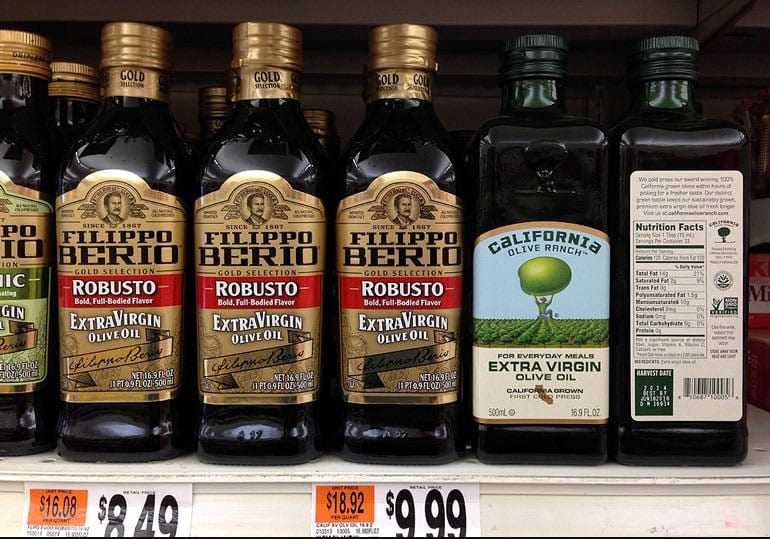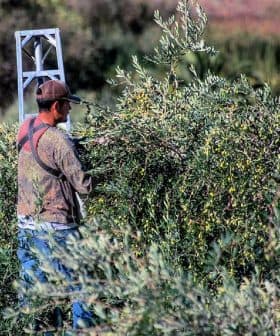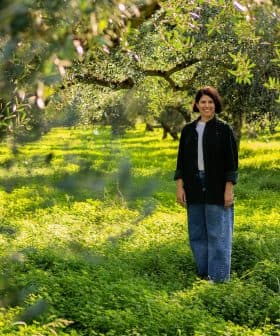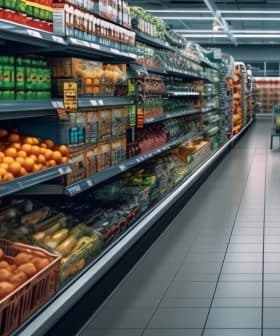California's Olive Oil Time Warp
Thanks to their new self-imposed regulations, California olive oil producers are already partying like it's 2015.
California olive oil producers have been entitled to label their olives with a “2015 harvest” date, even though they were harvested in 2014 due to new Grade and Labeling Standards. However, after this article was published, California changed their standards to accurately reflect the first year of the harvest season on their labels.
Samoa might get to celebrate the New Year before the rest of the world, thanks to its position along the International Date Line, but California olive oil producers have the tiny island nation beat — along with their European competitors.
California producers have just entitled themselves to call the olives they are harvesting right now part of their “2015 harvest,” ringing in the new year on their bottle labels before everyone else.
California’s own Grade and Labeling Standards for Olive Oil, recently implemented by the California Department of Food and Agriculture gives them the green light: “Because the harvest typically runs from October through January,” the new rules say, “the 2014 – 2015 harvest season is deemed to be the 2015 harvest.”

So if you think you knew everything to look for on an olive oil label, here’s one more thing to remember: If a bottle from California indicates a single-year harvest date of 2015, the olives were most likely harvested in 2014.
In fact, there has been a trend in olive oil production toward earlier harvests, which makes the new simplification even further from the truth.
A scan of one hundred Spanish, Italian and Greek olive oils that displayed harvest dates found not even one that used only the second year of the harvest season. Instead, most referred to the season itself, such as “2013/14,” or by the specific month (or months) and year, like “October-November, 2013.”
The imported oils that did indicate only a single year as the harvest date, in every case, used the first year of the season. In other words, olives harvested in October, 2013 bore the date “2013.” In California, that would be called “2014.”
Of course, a 2014 harvest date on a bottle of Californianextra virgin olive oil looks a lot better than the 2013 harvest date on that Italian label, even though they are equally fresh. But that’s the point.
Bottles of California Olive Ranch (COR) extra virgin olive oil on store shelves this week indicated only a single harvest year: 2014. But in fact, the oils were not made from olives harvested in 2014 at all, but in October and early November, 2013.
The oil made from olives harvested in 2013 was released in 2014, a COR representative explained. That’s why it bears the 2014 harvest.
Yeah, that’s what we used to call the bottling date.
California’s trimming of the date that used to be seen as the most reliable indicator of an olive oil’s true age will likely cause European producers who have used more accurate harvest date indications to start dumbing-down their labels to appear as fresh as their Golden State rivals.
The largest American olive oil company, California Olive Ranch, says on its website“you should know how fresh your olive oil is, that’s why every bottle of our olive oil displays the harvest date.”
Right. Just remember to subtract a year, and you’ll be good.









